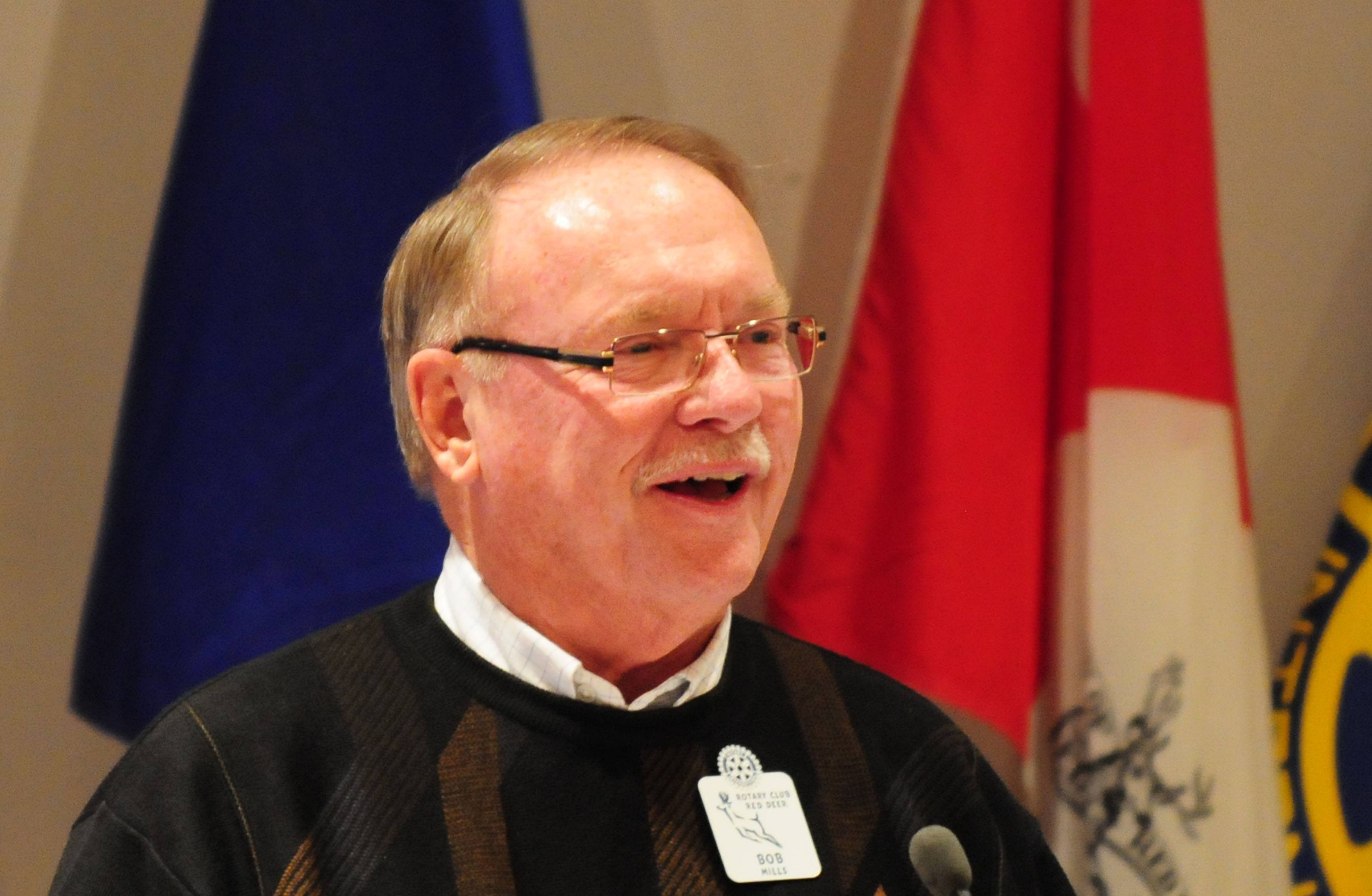Former Red Deer MP Bob Mills hasn’t slowed down too much since leaving public life.
Mills, who retired in 2008, shared what he’s been up to at the Downtown Rotary Club’s weekly luncheon meeting earlier this week.
He spoke to members about the Plasco Waste Conversion Plant which is set to be developed near Red Deer. Mills has long been a strong proponent of the project.
Several local communities including Red Deer are on track to get rid of a huge chunk of their garbage via cutting edge technology designed by the Ottawa-based Plasco Energy Group.
It will mark the first fully commercial plant of its kind in the world – test plants are already up and running in Ottawa and Spain.
Through the process, known as gasification, garbage is broken down through heat into its molecular parts – a synthetic gas, water and a rock-hard substance usable in several ways from commercial construction to insulation to gravel.
The synthetic gas then drives turbines and produces electricity – likely a key energy source in the future, said Mills.
Eighty per cent of that electricity can be sold into the local grid.
“The end result is that 98 per cent (of the garbage) is totally recycled into usable materials,” said Mills, adding that several countries are currently outlawing incinerators for garbage disposal.
Mills said the Red Deer plant would cost $110 million and plans are pretty much in place. It’s currently at the federal government level for review.
“The day the decision is made, the sod gets turned and the plant gets built. We’ll have the world coming to look at it.”
Mills has also been a regular visitor to China for a stream of environmental projects for his input. Interest in ‘green’ technology has increased substantially over the years in that nation, he said.
“They have one-quarter of the world’s population. So if we help to fix their environment, think of what we do for the world. So that’s pretty exciting,” he said. “They are spending a huge amount of money on research and development, and they hope to turn it into a commercially beneficial program.”
‘Plasco China’ is currently in the works, with the first plant set for Beijing which produces 22,000 tonnes of garbage each day, said Mills. Five plants are also being planned for Poland.
Mills is also on the International Commission on Land Use Change and Ecosystems. “We listen to scientists, academics, business leaders and then do a report once a month that goes to the G-20. It’s extremely interesting work to do,” he said.
Mills is also on the federal government’s National Round Table on the Environment and the Economy.
The group tackles issues such as ‘what will be the cost to Canada of climate change’ and ‘what happens if we move with the Americans and ‘what happens if we move ahead of the Americans.’
The group has also been looking at the impact of climate change right up to 2050. But it’s not all bad news.
“We and Russia probably will have some of the greatest benefits from climate change that any two countries could have. Any place with deserts could have the most significant problems.”
Meanwhile, Canada needs to do better in terms of becoming a low-carbon producing economy, he said.
“It tends to be that municipalities and the provinces are quite a bit ahead of the feds on this,” he said. “We need to shake that cage and get them up to date on this. And that’s what the national round table is attempting to do.”
mweber@reddeerexpress.com



